Politics and Government
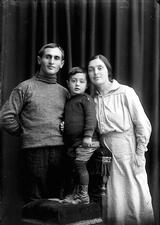
Devorah Dayan
Devorah Dayan was a symbol of the new Hebrew woman in pre-state Israel: she was maternal, rooted in the land, and fulfilled the values of a pioneer society. Her long writing career mostly comprised of autobiographical essays in publications for the women workers’ movement.
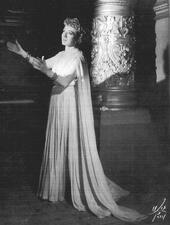
Edis De Philippe
Opera in Israel owes its creation primarily to singer, director, producer, and impresario Edis De Philippe. De Philippe made her New York opera debut in 1935 before performing with the Paris Opera and touring Europe and South America. She then founded the Israel National Opera Company in 1947 and ran it until her death in 1979.
Vera Dean
While her book, Builders of Emerging Nations (1961) discusses the important qualities necessary to be a leader in the political arena, Vera Dean’s life was a testament to her own leadership abilities. Dean helped shape American foreign policy and opinion on international relations, as both an educator and a writer.

Deborah 2: Midrash and Aggadah
Deborah, one of the most extraordinary women in the Bible, is presented as an extremely righteous and praiseworthy woman in rabbinic literature. Though some traditions criticize her pride, perhaps wary of how she transgressed gender norms, most of the rabbinic texts about Deborah are filled with praise.

Deborah: Bible
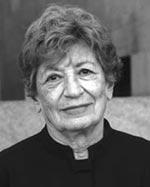
Midge Decter
Though she began her career in publishing at liberal Jewish journals, Midge Decter became a prominent neoconservative in the 1970s, famous for her attacks on the women’s liberation movement. By the 1980s, Decter turned to foreign policy and became a vocal Cold Warrior opposed to the Soviet Union because of the threat it posed to the United States and Israel.
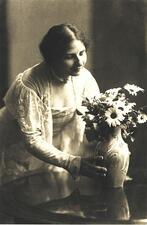
Ida Dehmel
Living a privileged existence in the wealthiest circles of German cultural society, Ida Dehmel became involved in circles of patronage of modern art that raised awareness for feminist issues, including women’s suffrage and equality for women’s artists’ associations. In 1916 she co-founded the Women’s Society for the Advancement of German Art.
Demography: Soviet Union, the Russian Federation and other Successor States
The statistics on Jewish marriage, divorce, fertility, emigration, and aging within the Soviet Union reveal new pockets of history and can shed light on the effects of historical events on Jewish lives.
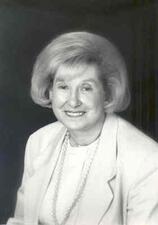
Florence Levin Denmark
Florence Levin Denmark helped found the field of women’s psychology and built crucial support for it in academic circles.
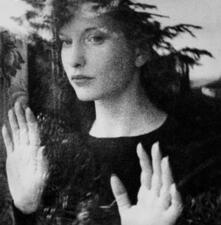
Maya Deren
Maya Deren pursued an ambitious career as a writer, publishing poetry, essays, and newspaper articles. She was also one of the most important avant-garde filmmakers of her time for her use of experimental editing techniques and her fascination with ecstatic religious dances. In 1946 she used a Guggenheim Fellowship to photograph Haitian dance.
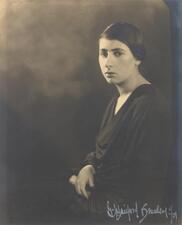
Babette Deutsch
Babette Deutsch, born and raised in New York City, was a gifted poet, novelist, translator, and educator. In her work, she interwove elements of vastly different cultures and times, from the Bible and Shakespeare to Russian and Japanese literature. She often used her work to explore Jewish themes and culture.
Naomi Deutsch
A leader in the field of public health nursing, Naomi Deutsch spearheaded health and sanitation campaigns in the United States, Central America, and the Caribbean. In running settlement houses, teaching, and eventually developing and implementing policy at the federal level, Deutsch dedicated her career to serving others through public health.
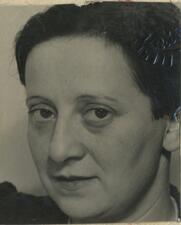
Friedl Dicker-Brandeis
Friedl Dicker was an artist and educator who studied at the Bauhaus school then led art classes at Terezin. In the ghetto, Dicker taught drawing to hundreds of children, designed sets and costumes for children’s performances, and made an exhibition of children’s drawings in a basement. She also created her own sketches, many of which were discovered in the 1980s.
Divorce: The Halakhic Perspective
Florence Dolowitz
Florence Dolowitz both cofounded the Women’s American ORT (Organization for Rehabilitation and Training) and helped lead the organization for decades.
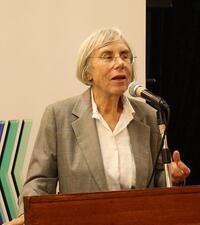
Dalia Dorner
Israeli Supreme Court Justice Dalia Dorner was known for citing non-legal sources in her decisions to illustrate the just society she aspired to live in. With landmark cases impacting gender equality, the right to education for all, and the right to live in dignity, Justice Dorner’s legal and social legacy is deeply rooted in human rights.
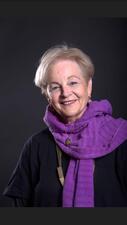
Amira Dotan
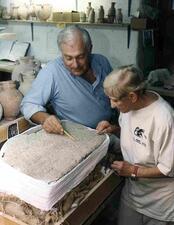
Trude Dothan
Trude Dothan was one of the foremost biblical archaeologists of her generation. Her excavations and her research brought to light the material culture of the Philistines, the cultural connections between the seagoing nations and ancient Israel, and the connections with Egypt.
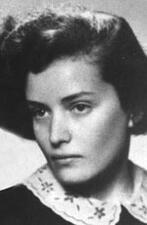
Gusta Dawidson Draenger
Gusta Dawidson Draenger was active in resistance movements during World War II, enduring imprisonment and torture. Her famous work, Justina’s Diary, recalls her experiences within the resistance and while incarcerated.
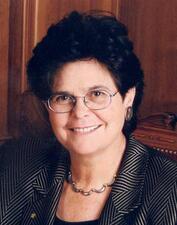
Ruth Dreifuss
Ruth Dreifuss was the first Jewish member of the Federal Government of Switzerland and the first female President of the country. When she became President of the Confederation in 1999, she was the first Jew and the first woman to hold the office.
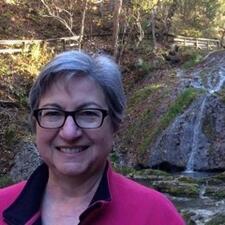
Ellen Dreyfus
Sylvia Goulston Dreyfus
Sylvia Goulston Dreyfus worked to improve Boston both through community activism and through her support of art and music. Along with being president of the Hecht Neighborhood House, she was trustee of the New England Conservatory, worked on the Berkshire Music Festival, and served as honorary chair of the Palestine Orchestra Fund.
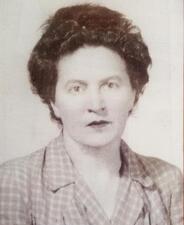
Berta Blejman de Drucaroff
Berta Blejman de Drucaroff was a prominent activist of the Yiddisher Kultur Farband (YKUF/ICUF) and a communist militant in anti-fascist organizations. She was president of the YKUF Women's Organization (OFI) and the main promoter of the reading circle network (leien kraizn) in Argentina.
Sophia Dubnow-Erlich
After finishing her education, Sophia Dubnow-Erlich became an active member of both the Social Democratic Labor Party and the Jewish Labor Party and wrote for Bund journals before fleeing Vilna for Warsaw in 1918. After emigrating to America in 1942, she remained politically active and continued her prolific writing career.
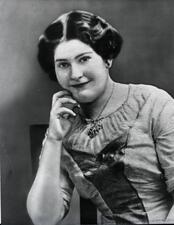
Rose Dunkelman
Rose Dunkelman was an innovative, industrious Canadian Zionist leader who worked tirelessly for the Jewish national cause. Dunkelman was the founder and long-time vice-president of Canadian Hadassah-WIZO. In 1925 she founded the Toronto Hadassah Bazaar, and that same year she was named to the National Executive of the Zionist Organization of Canada.


